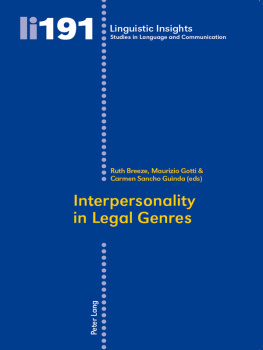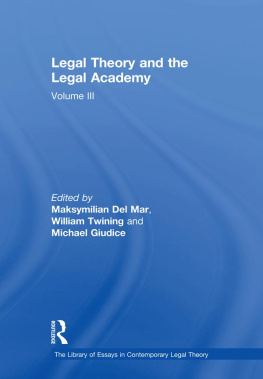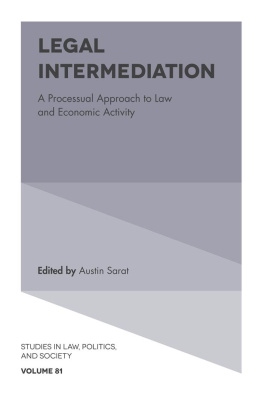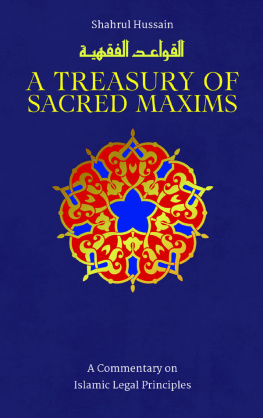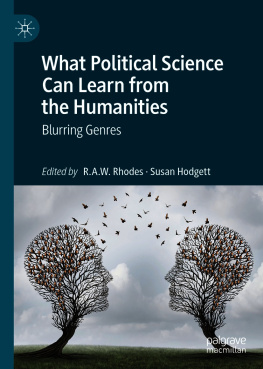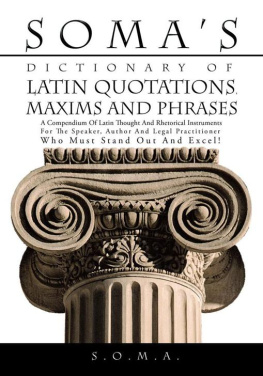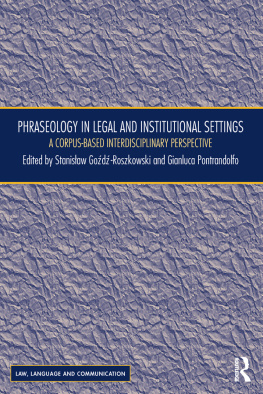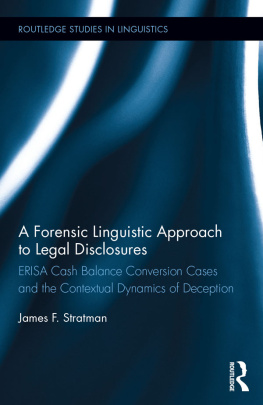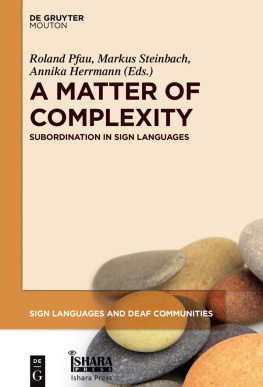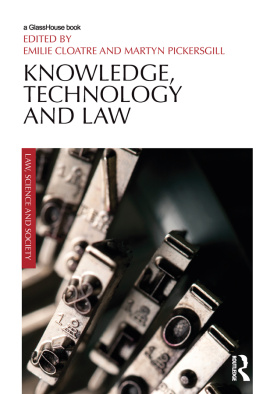Linguistic Insights

Studies in Language and Communication
Edited by Maurizio Gotti,
University of Bergamo
Volume 191
ADVISORY BOARD
Vijay Bhatia (Hong Kong)
Christopher Candlin (Sydney)
David Crystal (Bangor)
Konrad Ehlich (Berlin / Mnchen)
Jan Engberg (Aarhus)
Norman Fairclough (Lancaster)
John Flowerdew (Hong Kong)
Ken Hyland (Hong Kong)
Roger Lass (Cape Town)
Matti Rissanen (Helsinki)
Franoise Salager-Meyer (Mrida, Venezuela)
Srikant Sarangi (Cardiff)
Susan arevi (Rijeka)
Lawrence Solan (New York)
Peter M. Tiersma (Los Angeles)

Ruth Breeze, Maurizio Gotti & Carmen Sancho Guinda (eds)
Interpersonality
in Legal Genres


Bibliographic information published by die Deutsche Nationalbibliothek
Die Deutsche Nationalbibliothek lists this publication in the Deutsche
Nationalbibliografie; detailed bibliographic data is available on the Internet at http://dnb.d-nb.de.
British Library Cataloguing-in-Publication Data: A catalogue record for this book is available from The British Library, Great Britain
Library of Congress Cataloging-in-Publication Data
Interpersonality in legal genres / Ruth Breeze, Maurizio Gotti & Carmen Sancho Guinda (eds).
p. cm. (Linguistic insights, studies in language and communication ; 191)
Includes bibliographical references and index.
ISBN 978-3-0343-1524-1
1. LawLanguage. 2. Sublanguage. 3. Interpersonal relations. 4. Psycholinguistics. 5. Rhetoric. I. Breeze, Ruth, author editor of compilation. II. Gotti, Maurizio, author editor of compilation. III. Guinda, Carmen Sancho, author editor of compilation.
K213.I588 2014
340.14dc23
2014013766
Published with the support of Dipartimento di Lingue, Letterature Straniere e Comunicazione, Universit di Bergamo, Italy.
| ISSN 1424-8689 pb. | ISSN 2235-6371 eBook |
| ISBN 978-3-0343-1524-1 pb. | ISBN 978-3-0351-0725-8 eBook |
Peter Lang AG, International Academic Publishers, Bern 2014
Hochfeldstrasse 32, CH-3012 Bern, Switzerland
All rights reserved.
All parts of this publication are protected by copyright.
Any utilisation outside the strict limits of the copyright law, without
the permission of the publisher, is forbidden and liable to prosecution.
This applies in particular to reproductions, translations, microfilming,
and storage and processing in electronic retrieval systems.
About the Author
Ruth Breeze has researched and published widely in the area of Discourse Analysis applied to media language and specialised discourse, focusing particularly on the field of legal English. She is Head of the Institute of Modern Languages at the University of Navarra, and a member of the GradUN Research Group in the Instituto Cultura y Sociedad.
Maurizio Gotti is Professor of English Language and Translation, Head of the Department of Foreign Languages, Literatures and Communication, and Director of the Centre on LSP Research (CERLIS) at the University of Bergamo. His main research areas are the features and origins of specialized discourse.
Carmen Sancho Guinda is a Senior Lecturer in the Department of Applied Linguistics at the Polytechnic University of Madrid, where she teaches English for Academic Purposes and Professional Communication. Her research focus is the interdisciplinary analysis of academic and professional discourses and genres, and innovation in the teaching and learning of academic competencies.
About the Book
Few concepts in Discourse Studies are so versatile and intricate and have been so frequently contested as interpersonality. This construct offers ample terrain for new research, since it can be viewed using a range of diverse theoretical frameworks, employing a variety of analytical tools and social perspectives.
Studies on the relationship between writer/reader and speaker/audience in the legal field are still scarce, dispersed, and limited to a narrow range of genres and a restricted notion of interpersonality, since they are most often confined to modality and the Gricean cooperative principles.
This volume is meant to help bridge this gap. Its chapters show the realisation and distribution of interpersonal features in specific legal genres. The aim is to achieve an expansion of the concept of interpersonality, which besides modality, Grices maxims and other traditionally interpersonal features, might comprise or relate to ideational and textual issues like narrative disclosure, typography, rhetorical variation, or Plain English, among others.
This eBook can be cited
This edition of the eBook can be cited. To enable this we have marked the start and end of a page. In cases where a word straddles a page break, the marker is placed inside the word at exactly the same position as in the physical book. This means that occasionally a word might be bifurcated by this marker.
Contents
7 | 8 8 | 9
1. Interpersonality as a fuzzy paradox
Few concepts in Discourse Studies are so versatile and intricate and have been so frequently contested as interpersonality. This construct not only offers diverse perspectives and research topics depending on the linguistic schools and theoretical frameworks it is viewed from, or the instrumental tools employed in its analysis, but also across successive social spheres. It is moulded by national cultures, registers, disciplines, genres, and private intentions, as well as by the media and the communicative situation the nature and size of audiences, for example through which all of them are transmitted. Clearly, the notion is versatile due to the dynamism inherent in every social group, and particularly within specialized communities, where established conventions may change and new genres emerge and make use of the latest technologies to produce and disseminate knowledge. What is not so evident, however, is the boundary between the two basic elements assumed to integrate the interpersonality construct: stance and engagement (Hyland 2005). They hold a circular relationship (Sancho Guinda/Hyland 2012), fuzzy and full of overlaps, since engaging with interlocutors (or opting for not doing so) inevitably entails adopting a stance on them, and taking and disclosing such posture intentionally is per se an act of engagement.
In this sense, general scholarly labels such as evaluation (Hunston/Thompson 2000), stance as a conjunction of ideational, interpersonal, and stylistic stands (Biber/Finegan 1989, Biber 2006, Jaffe 2009, Gray/Biber 2012), positioning (Harr/van Langenhove 1999), point of view (Simpson 1993), footing (Goffman 1981) and appraisal (Martin 2000, Martin/White 2005) aptly reflect this circularity. The 9 | 10 fuzziness intrinsic to interpersonality becomes even more patent when another superordinate term, voice, is invoked, often as a synonym. Do they in actual fact refer to the same phenomenon? The answer is yes and no. Both subsume stance and engagement (that is, the different kinds of stance), are qualified as dialogic, and imply a certain degree of subjectivity, but voice seems to incorporate an expressionist nuance of stylistic distinctiveness, of authorial imprint, either individual or collective if there is really such a dichotomy, as Prior (2001) doubts, because society always mediates individual choices. Voice and interpersonality are
Next page
